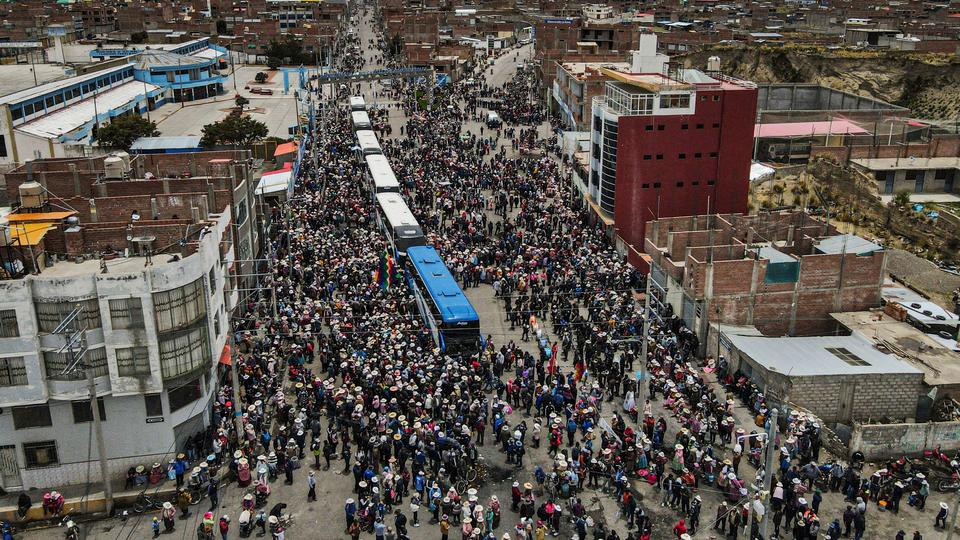
Vietnam's President Phuc reportedly ousted by party rivals
David Hutt
JAN. 17,2023
Pro-Western President Nguyen Xuan Phuc has purportedly been forced out of office in a reshuffle that is set to empower Vietnam's oppressive security services.
Vietnam's President Nguyen Xuan Phuc announced his "resignation" to the party's elite decision-making Politburo last week, Vietnamese sources told DW.
The Western-orientated leader took up the largely ceremonial presidency in 2021, after five years as prime minister. He is seen as one of the main technocrats within the ruling Communist party, and he had developed close connections with Western capitals during his time in office.
His likely dismissal comes just weeks after several other experienced foreign policy hands were booted out of the ruling Vietnamese Communist Party for alleged corruption. The reshuffle is expected to cement the power of the country's security elite.
A diplomatic source told DW that the party's Central Committee will meet on Tuesday for a special session to discuss Phuc's successor, as he is set to formally announce his resignation to the National Assembly, the country's legislature, Wednesday.
What do we know about Phuc's ouster?
Le Hong Hiep of the ISEAS–Yusof Ishak Institute research center in Singapore speculated that corruption might be the reason Phuc was pushed out, according to an article published in the analysis outlet Fulcrum.
There have long been rumors that the president's wife was involved in the so-called Viet A corruption scandal that last month resulted in Nguyen Thanh Long, the former Minister of Health; and Chu Ngoc Anh, the former Minister of Science and Technology, being expelled from the Communist Party.
If the reports are true, Phuc would be the highest-ranking official yet to be caught up in the widespread anti-graft campaign launched by Communist Party General Secretary Nguyen Phu Trong in 2016. Hundreds of senior officials and businesspeople have already been dismissed or jailed because of the campaign.
It is unclear what reason Phuc will give for his resignation tomorrow, but Zachary Abuza, a professor at the National War College in Washington, sees it as a "total power play" by his enemies in the party.
Who stands to benefit from Phuc's departure?
Phuc's likely successor will be To Lam, the Minister of Public Security, who has gained Trong's trust in directing anti-corruption probes. Lam was originally expected to leave his office by April due to informal term limits on ministers.
A swift promotion to the presidency would allow Lam to remain in a powerful position while also trying to maintain control over the security ministry from the largely ceremonial presidential office, Abuza said.
Other senior Communist Party members would also benefit from Phuc's departure. Though the next National Congress won't be held until 2026, jostling for the top jobs starts early.
The Communist Party has faced problems with electing its leaders in the past. At the last National Congress in 2021, party chief Trong remained in office for a near-unprecedented third term because the party couldn't agree on a successor.
Hiep of the ISEAS–Yusof Ishak Institute noted that National Assembly Chairman Vuong Dinh Hue also stands to win big if Phuc departs, as he would emerge as the "only viable candidate to replace General Secretary Trong" in the 2026 reshuffle.
Abuza reckons that apart from Hue, Phuc was the only other Politburo member who had the acumen to become party boss next year. Phuc's departure opens a straight path for Hue, who happens to be Trong's protege.
Le Hong Hiep adds that Prime Minister Pham Minh Chinh, who is unlikely to get a promotion next time around, may also be at risk.
According to Hiep, he could face trouble because of his alleged relationship with Nguyen Thi Thanh Nhan, the chairwoman of Advance International Corporation, a firm at the center of another major corruption scandal. Nhan, who is on the run, was last month sentenced in absentia to 30 years in prison.
How will the reshuffle effect Vietnam's foreign policy?
Phuc considerably improved Vietnam's ties with the US and the EU as prime minister between 2016 and 2021. The much-touted EU-Vietnam Free Trade Agreement was signed and ratified under his watch, and the 68-year-old politician is believed to be among Vietnam's most trusted leaders for foreign diplomats and investors.
His departure comes on the heels of dismissals of numerous technocratic and Western-leaning officials.
Pham Binh Minh, the former foreign minister and a deputy prime minister, was last month "allowed" to resign from his current posts. Another Western-educated deputy prime minister, Vu Duc Dam, was also dismissed.
Hunter Marston, a researcher on Southeast Asia at the Australian National University, said it seems that "Trong and his Ministry of Public Security are pushing out the more progressive or internationally-minded senior officials who had advanced the US-Vietnam relationship."
The reshuffling of officials is unlikely to radically change Vietnam's foreign policy, although it is "good for China and Russia," said Abuza from the National War College in Washington.
Le Hong Hiep from Singapore doesn't see drastic changes on the horizon either.
"All these personnel changes are more about Vietnam's domestic political dynamics," Hiep told DW. "I don't think they have anything to do with Vietnam's foreign policy."
What is Vietnam's stance on China and the West?
China remains Vietnam's largest trading partner, but historical and geopolitical tensions, especially over disputed territory in the South China Sea, means Hanoi will continue to see Beijing as a threat.
Also, Vietnam's business and political relations with Western states have massively improved in recent years. In November, Olaf Scholz became the first German chancellor to visit Vietnam for 11 years.
But Vietnamese Communist apparatchiks remain skeptical of Western intentions. Many of them fear that Western democracies are aiming for regime change in the one-party state and they rankle at foreign organizations lecturing the government over human rights.
Those dynamics are not likely to change but analysts say foreign governments and investors should expect a more inward-looking and potentially less stable political situation in Vietnam.
The ascendant public security apparatus is arguably most wary of interactions with Western democracies. At the same time, foreign diplomats are quickly losing their most trusted conduits within the party, the sort of officials who informally provide information and support.
And although Vietnam's economy grew at 8% last year, according to the government, purges of senior, competent officials may weaken the country's political stability. Trong's anti-corruption crusade shows no signs of slowing down, with Phuc its biggest scalp to date.
Edited by: Darko Janjevic























